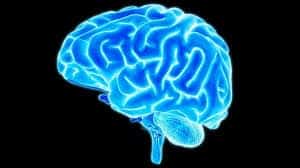What you also need to realise is that when it comes to people struggling with addiction, you are not alone. In the UK, an estimated two million people are battling different forms of addiction. In most cases, the journey to addiction started out as a simple experiment. Sometimes, people face certain pressures that lead them to seek solace in substance and alcohol abuse. Also, peer pressure and the need to fit in is one of the main causes of addiction in young people.
Addiction involves an intense craving for something; this could be food, alcohol, drugs, tobacco and even sex. It is also the total loss of control when it comes to the source of addiction and continuous use or involvement, despite any negative health implications. Addiction takes over the brain by first changing the way it registers pleasure and then subverting other normal life processes, such as learning and motivation.
How addiction begins
No one ever started out with the express intention to become addicted to any substance or action. However, many people end up beingtrapped in the cycle of addiction.
Some senior therapist suggests that for some people, the spiral into addiction can be quite sudden, while for others, there are quite clear signs of imminent addiction. However, even though breaking an addiction can be tough, it can be done; subsequently,people struggling with addiction can eventually return to a fulfilling and profitable life.
During the early stages of addiction, the brain undergoes a series of changes, whereby the process of pleasure recognition is changed, which leads to compulsive behaviour.
The four important brain chemicals
The brain produces four very important chemicals that control different vital functions in the body. Substance abuse, alcohol and other forms of abuse that lead to addiction subvert the way these chemicals function eventually leading to compulsion and addiction.
- Dopamine:Dopamine serves as a form of reward for completing structured tasks. For instance, when performing simple activities such as brushing your teeth or completing a chore, the brain releases dopamine as reward for that work. It’s safe to assume that without dopamine, a lot of the activities or chores we complete would be left untouched. When people use stimulants such as amphetamines or cocaine, thisproduces a high level of dopamine, drastically affecting their reward and motivation system.Because dopamine is released many times each day as reward for activities, constant disruption to how this system works can result in long-term complications, such as a marked lack of interest in non-substance or alcohol related activities.
- Serotonin: Research indicates that the chemical or hormone called serotonin is responsible for regulating our emotions. In other words, serotonin makes us feel happy. When a person is constantly depressed and unhappy, it might be that they have low serotonin levels. In turn, they could be prescribed antidepressants, which increase serotonin. Consuming excess alcohol or taking illegal substances plays havoc with the brain’s serotonin levels, causing and individual to experience a state of ‘high’ euphoria,for as long as that substance is still active. This affects the person’s ability to know which happiness is induced and which is real. Over time, the individual will need more and more of the substance to maintain that level of euphoria.
- Endorphins: The brain releases endorphins to help us relieve pain – both physical and emotional. Endorphins not only regulate pain, but also change our perception of the pain, making it easier for our body to endure it while we heal. Opiates such as morphine and Fentanyl are known for drastically reducing the amount of pain the body feels, which is why they are usually prescribed for a particularly painful injury or surgery. Unfortunately, more and more people are becominghooked on these drugs, especially after a stay in hospital.
- Oxytocin: This is the bonding chemical released by the brain. It helps maintain intimacy between people. Some individuals who are addicted to sex do so because they are trying to get as much Oxytocin into their system as possible. In most cases, such people are essentially looking for intimacy and the comfort of physical touch.
Bringing it together
Alcohol and drugs change the sensitive way in which the brain operates. When these substances are abused, the above chemicals are released in abnormal quantities. After a while, the individual will no longer be able to experience the effects of these hormones ordinarily, without the use of suchsubstances. This is because the brain automatically adjusts to the new system, while the individual begins to crave anything that will bring about the release of these hormones. Consequently, addiction begins to take hold.
Fortunately, with constant support, care and the right environment, people who suffer from addiction can get the help they need to beat the urge.












